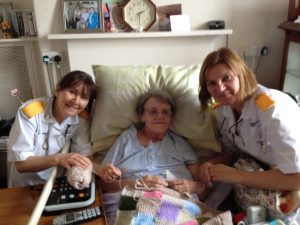 “Disconnection destroys us. It leads to panic buying, to growing fear and to spiritual and emotional as well as physical isolation,’ said Justin Welby, Archbishop of Canterbury, at the beginning of the Covid pandemic in March.
“Disconnection destroys us. It leads to panic buying, to growing fear and to spiritual and emotional as well as physical isolation,’ said Justin Welby, Archbishop of Canterbury, at the beginning of the Covid pandemic in March.
Now it’s September, and we know that the mental health of thousands of people has been badly affected. ‘It’s taking a huge toll on our wellbeing and will have lasting effects long after lockdown is over,’ writes MIND, in its latest publication. Sean Duggan, chief executive of the Mental Health Network, part of the NHS Confederation noted that ‘the pandemic has already taken an incredible toll on the mental wellbeing of the British public, and swift action is needed.’ Yet swift action is highly unlikely when the NHS focus on Covid means that even patients with cancer and heart disease aren’t getting treatment.
So what can we do to help – both ourselves and others?
There are ten simple things we can do. Simple, but with powerful effects. It’s the ‘guarding of our hearts’ that Proverbs 4: 23 talks about.
1. Remember the good things. King David deliberately brought to mind the good things God had done in his life. He wrote, ‘When my anxious thoughts multiply within me, Your consolations delight my soul.’ (Psalm 94: 19). And we can do the same. When we’re anxious we forget those good things.
2. Write down all you have to be grateful for: Being grateful has physical as well as emotional There’s so much we can be grateful for, big and little things.
3. Encourage others: Telephone, send emails, write FB, or twitter posts. You don’t need a reason – you can begin by saying ‘I was just thinking of you…’ or ‘I was just remembering when … ‘
4. Accept help from others.We can be so independent that we unwittingly pull up the drawbridge that lets people in to help. When someone phones to ask if there’s anything they can get you from the shops, say ‘yes’! Even if it’s only a bar of soap. (They might even be able to find toilet rolls!)
5. List your achievements: Write out the things God has enabled you to do in your life.
6. Look for joy in the small things: How the sun’s rays through the windows light up the pattern in the carpet, or a picture – or even if it’s only the dust, then the sunshine itself!
7. Find the Scripture versesGod’s character, and His promises to you. Write the verses out on post-it notes and stick them where you will see them during the day – and stop to read them. (Some references are given below.*) The Bible tells us that Scripture is ‘living and active’ – like spiritual medication that will do you good.
8. Exercise! The two things that build brain mass are exercise and education. This link takes you to gentle exercises for seniors. https://www.youtube.com/channel/UCC4TRhL4BiA7–jpxVVXcpQ And learning a new language expands cognitive capacity.
9. Do something creative! Learn how to knit. There’s a delightful session on Youtube here – https://www.youtube.com/watch?v=p_R1UDsNOMk.
10. Make or listen to worship music: Music is good for the brain, and worship music is especially good for our souls. Selwyn Hughes, founder of Crusade for World Revival (CWR), said that that in worship we enter the presence of the Lord and His unity becomes our unity. He puts our fragmented, world-weary selves back together.
*Verses to look up: Isaiah 41:10, Psalm 46:1, Deuteronomy 31:8, Philippians 4:13, Psalm 139, Psalm 18:29, Psalm 138:8, Isaiah 54:10 – there are many more.















